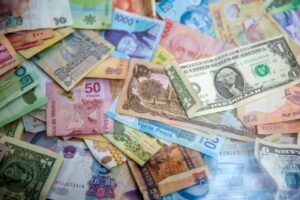The Impact of Forex Trading Tax on Your Investment Returns
Forex trading has gained significant popularity in recent years, with more and more individuals venturing into the foreign exchange market to make profits. However, many traders overlook an important aspect of forex trading – taxes. The tax implications of forex trading can have a significant impact on your investment returns. In this article, we will delve into the various ways forex trading tax can affect your profits and discuss strategies to minimize its impact.
One of the key factors to consider when it comes to forex trading tax is the classification of trading activity. In most countries, forex trading is classified as either capital gains or ordinary income. The classification depends on various factors such as the frequency of trading, the intention behind trading, and the individual’s level of expertise. It is important to understand the tax classification in your country, as it will determine the tax rate you are subject to.
If forex trading is classified as capital gains in your country, it means that any profits made from forex trading will be taxed at a lower rate compared to ordinary income. This can be advantageous for traders, as they can benefit from the lower tax rate and potentially increase their investment returns. However, it is important to note that capital gains tax is usually applicable only if trading is done on an occasional basis, and not as a full-time profession.
On the other hand, if forex trading is classified as ordinary income, the profits made from trading will be subject to the normal income tax rate. This can significantly impact your investment returns, as the higher tax rate can eat into your profits. It is crucial to consider this aspect when calculating your potential returns and plan your trading strategies accordingly.
Another important aspect to consider is the deductibility of trading expenses. In some countries, traders are allowed to deduct certain trading expenses from their taxable income, which can help reduce the overall tax liability. These expenses may include trading software, educational materials, internet and telephone charges, and even a portion of home office expenses if trading is done from home. It is advisable to consult a tax professional to understand the specific deductibility rules in your country and make the most of these deductions.
Furthermore, forex traders who hold positions overnight may also be subject to additional taxes. In some countries, overnight positions are subject to a specific tax known as a swap tax or rollover tax. This tax is applied to the interest earned or paid on positions held overnight and can significantly impact your investment returns. It is essential to be aware of these additional taxes and factor them into your trading strategies.
To minimize the impact of forex trading tax on your investment returns, it is crucial to maintain accurate and detailed records of all your trades. This includes keeping track of trade dates, transaction amounts, profits, and losses. By maintaining organized records, you can easily calculate your taxable income, claim deductions, and ensure compliance with tax regulations. Additionally, it is advisable to consult a tax professional who specializes in forex trading to help you navigate the complex tax landscape and optimize your tax strategy.
In conclusion, the tax implications of forex trading can have a significant impact on your investment returns. It is important to understand the tax classification of forex trading in your country, as well as the deductibility of trading expenses, and any additional taxes on overnight positions. By being aware of these tax implications and implementing effective tax strategies, you can minimize the impact of forex trading tax on your profits and maximize your investment returns.






